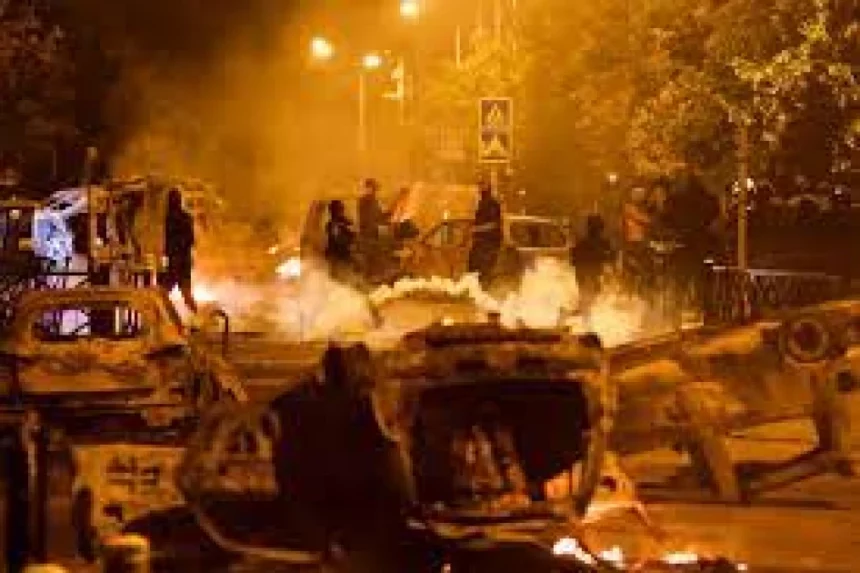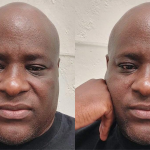French President Emmanuel Macron convened his cabinet for a second crisis meeting in two days on Friday, after the most widespread night of rioting yet in protest at the fatal shooting of a teenager by police.
At least 667 people were arrested across France overnight, Interior Minister Gerald Darmanin said on Twitter on Friday, as rioters clashed with police in several cities, shops and banks were torched and buses overturned.
Darmanin had deployed 40,000 officers on Thursday night in a bid to quell a third night of unrest.
But violence broke out in Marseille, Lyon, Pau, Toulouse and Lille as well as parts of Paris, including the working class suburb of Nanterre, where 17-year-old Nahel M. – who was of Algerian and Moroccan descent – was shot dead on Tuesday,
Macron will meet with his cabinet at 1100 GMT in Paris, likely cutting short his attendance at a European Union summit in Brussels, his office said. The president has so far ruled out declaring a state of emergency.
Transport Minister Clement Beaune told RMC radio that public transport in the Paris region would be severely disrupted on Friday and did not rule out an early closure of the network. Twelve buses were set on fire and destroyed overnight in a depot in Aubervilliers, in the north of Paris.
In Nanterre on Paris’s western outskirts, protesters torched cars, barricaded streets and hurled projectiles at police following an earlier peaceful vigil held to pay tribute to the dead boy.
In central Paris, a Nike shoe store was broken into, and several people were arrested after store windows were smashed along the Rue de Rivoli shopping street, Paris police said.
They said they had made 307 arrests and that nine police and fire officers had been injured.
In the south, police fired tear gas grenades and Marseille’s tourist hot spot of Le Vieux Port was evacuated as youths clashed with police.
In Roubaix, in northern France, a fire destroyed the office of the TESSI company and several cars were set on fire.
The unrest has revived memories of riots in 2005 that convulsed France for three weeks and forced then-president Jacques Chirac to declare a state of emergency.



